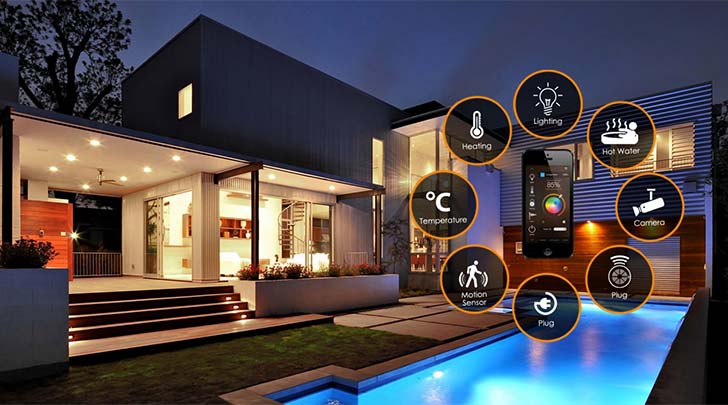
The Smart Home Revolution: Innovations and Implications
The innovation of smart homes marks a significant leap in home automation, making our living spaces more responsive, connected, and efficient. The fusion of technologies like IoT has transformed our interaction with our homes, offering unprecedented control and convenience.
The Mechanisms Behind Smart Homes
Smart homes operate on interconnected devices that communicate and operate through a centralized system, commonly controlled via smartphone apps or voice commands. These devices range from lighting and thermostats to security cameras, ensuring optimal convenience and security.
The backbone of a smart home is the Internet of Things (IoT), allowing devices to share data and execute commands seamlessly. The sophistication of these systems varies, offering solutions ranging from basic automation to advanced machine learning capabilities that adapt to your routines and preferences.
Automation is the cornerstone of smart homes, enabling devices to perform tasks based on predetermined rules, such as adjusting the thermostat at a specific time or locking the doors when you leave.
The Purpose of Smart Home Development
The primary aim of developing smart homes is to enhance the quality of life by offering unparalleled convenience and efficiency. They allow homeowners to manage their households effortlessly, saving time and energy.
Another critical objective is energy conservation. Smart homes optimize energy usage, reducing wastage through intelligent adjustments and timely alerts. This not only curtails energy bills but also contributes to environmental conservation.
Security and Peace of Mind
Security is a pivotal feature of smart homes. Advanced surveillance systems, doorbell cameras, and smart locks offer enhanced security, providing real-time alerts and footage, granting homeowners peace of mind, especially when they are away.
The integration of sensors and alarms for smoke, gas leaks, and water leaks adds an extra layer of safety, promptly alerting homeowners to potential hazards and emergencies.
Security measures in smart homes are continually evolving, incorporating advanced technologies to ward off threats and ensure the safety of the inhabitants.

The Future of Smart Homes
The future of smart homes is brimming with possibilities. The advent of 5G and advancements in AI promise more integrated and responsive smart home ecosystems. These developments will likely focus on enhancing user experience, energy efficiency, and security.
Advancements in AI and machine learning will enable smart homes to learn and adapt to user behaviors and preferences, automating tasks more intelligently and efficiently. The proliferation of smart devices will continue, possibly extending to every appliance and fixture in our homes.
The integration of renewable energy sources and energy storage solutions within smart homes is another exciting prospect, potentially revolutionizing energy consumption and sustainability in residential settings.
Conclusion: A Paradigm Shift in Living
The evolution of smart homes represents a paradigm shift in our approach to living spaces. The amalgamation of technology and home life offers a glimpse into the future, where our homes are not just shelters but intelligent entities that enrich our lives and well-being.
The innovations in smart home technology underscore the limitless possibilities of integrating technology into our daily lives, promising a future where our homes are more connected, intelligent, and responsive than ever before.
